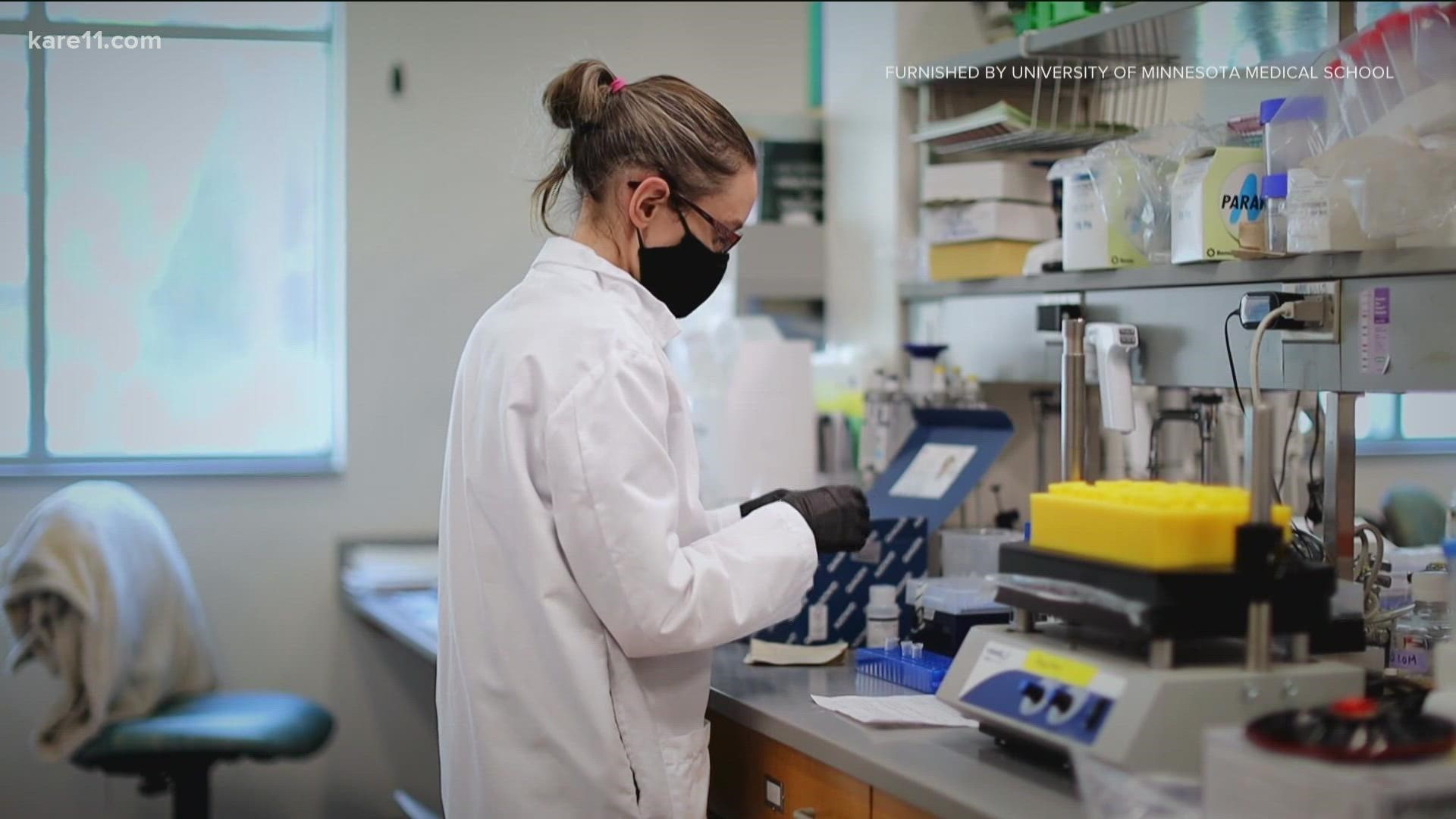MINNEAPOLIS — Since the beginning of the COVID-19 pandemic, the epidemic of opioid overdose deaths has deepened across the United States.
But a professor at the University of Minnesota Medical School is working on a solution that is now one step closer to becoming a reality.
For the last decade, Marco Pravetoni, an associate professor of pharmacology, has worked to develop the first vaccine to be tested in the U.S. for the treatment of opioid use disorder.
The vaccine, which is now in a Phase One human trial, aims to block or reduce overdoses and the high produced by opioids. The shot works by triggering the immune system to make antibodies that latch on to oxycodone and prevent it from crossing into the brain.
The trial comes at a critical time. In 2020, opioid-related deaths rose by nearly 60 percent in Minnesota.
"That's evidence that we need to do a better job at either protecting patients or offering them the best help that we can," Pravetoni said.
Pravetoni's lab is leading the vaccine research and analyzing data from the trial, but Columbia University Irving Medical Center in New York is working with the patients, and still trying to enroll more.
Pravetoni: "Because of the FDA guidelines, we cannot enroll treatment seeking individuals."
Kent Erdahl: "It seems like finding someone to enroll in this, who isn't seeking treatment for addiction, would be difficult."
Pravetoni: "Yeah, it's challenging. Specifically, a section, or a phase, of our clinical trial involves in-patient, which means patients are admitted to a medical facility to actually test the vaccine. That may discourage some of the participants."
Once fully enrolled, Pravetoni says the team aims to show how safe and effective the vaccine can be. It is expected to last up to a year and should work in combination with other available treatments, meaning it shouldn't conflict with things like methadone and naloxone, which is used by first responders to reduce overdoses. That's critical because the vaccine only targets oxycodone, at least for now.
Erdahl: "So many times, with overdoses that are happening right now, it's not just oxycodone, it's fentanyl, maybe heroin, any kind of combination that might be at play."
Pravetoni: "That's correct. That's a challenge. It's also an opportunity. That's where a science-based approach can actually come in handy. For example, right now in my lab, we are working for a quadrivalent vaccine that can target multiple opioids at once."
Even though it's taken 10 years for this vaccine to get to human trials, Pravetoni says the shot has already helped speed up the timeline for the next wave of vaccines, including the one targeting fentanyl.
If you or someone you know is struggling with addiction, there are several organizations that can help. The Hazelden Betty Ford Foundation has 5 locations in Minnesota and also offers virtual help. There's also the Substance Abuse and Mental Health Services Administration. They offer free and confidential help 24 hours a day, 365 days a year.

